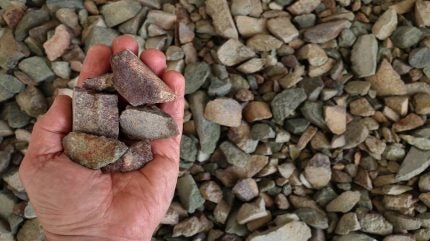
Canada is reportedly collaborating with international allies to potentially fund critical mineral projects, aiming to diversify the supply chain and reduce dependence on China.
The move was conveyed by Canada’s Energy and Natural Resources Minister, Tim Hodgson, reported Reuters.

Discover B2B Marketing That Performs
Combine business intelligence and editorial excellence to reach engaged professionals across 36 leading media platforms.
The focus is on minerals that are currently under China’s export restrictions, which pose challenges to G7 and NATO countries in producing vital mineral products.
In this context, Hodgson highlighted the MP Materials’ deal, which is also aimed at reducing foreign dependency.
MP Materials announced on 10 July that it had formed a public-private partnership with the US Department of Defense to establish a domestic rare earth magnet supply chain.
Currently, the US relies heavily on imports to obtain components for rare earth magnets.

US Tariffs are shifting - will you react or anticipate?
Don’t let policy changes catch you off guard. Stay proactive with real-time data and expert analysis.
By GlobalDataHodgson was quoted by the news agency as saying: “I think you will see us looking at similar types of transactions, working with our allies.
“The difference between the MP Materials deal is all of the output goes to the United States there. We are interested in doing these sorts of deals in partnership with our allies to share the output with our allies,” Hodgson explained.
In addition, Canada has taken steps to protect its domestic steel industry from global pressures by introducing a tariff rate quota.
Effective from 1 August 2025, the quota applies to countries holding free trade agreements with Canada, excluding the US and Mexico.
For those without such agreements, the tariff-free quota will be halved to 50% of 2024 volumes, a significant reduction from the previous 100%. Imports exceeding this new quota will face a 50% tariff.



